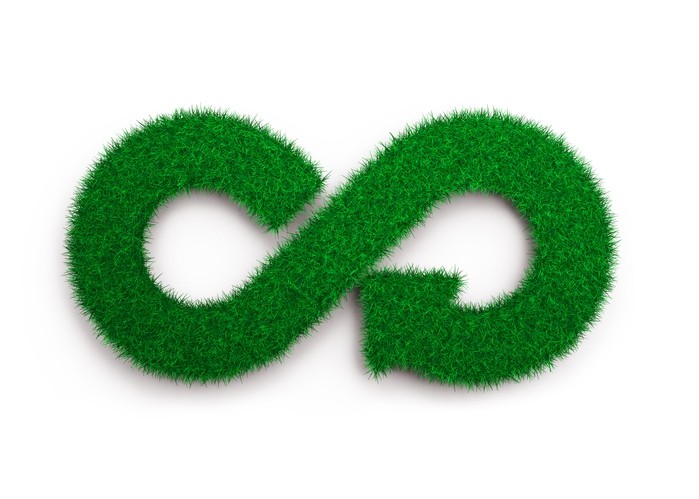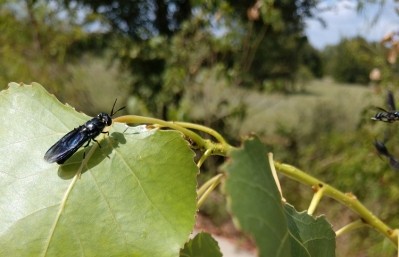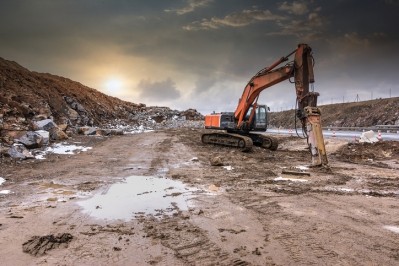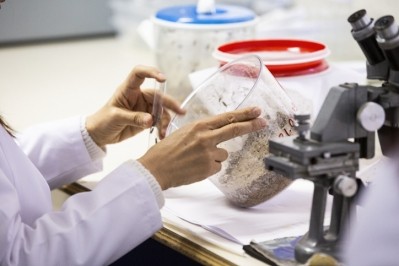US: Feed ingredient production has role in city's zero-waste push

The multi-step Circular Charlotte plan was developed following a review and assessment of the city completed in September by Metabolic, said Amy Aussieker, executive director with Envision Charlotte. “We want to be the leading city in the US around the circular economy,” she added.
“They came up with five businesses cases and one is the innovation center,” she told FeedNavigator. “The innovation barn is going to be ground zero for the circular economy, and there are also four other business cases that came out of that study dealing with organics and food waste, concrete, textiles and plastics.”
The review was intended to generate short- and long-term strategies to address waste generated by the city, she said. It presented five business cases including an innovation center – now the innovation barn – and work with black soldier flies.
“It was a really cool opportunity to look at how we transform Charlotte into an innovative and more sustainable city,” Aussieker said.
The overarching plan provides a potential path for Charlotte to become a ‘Zero Waste City’ by 2050, according to project documents. About 11.5% of city waste is recycled at this stage and 16% of the material sent to the landfill is food waste.
The non-profit organization also partnered with the solid waste department at the City of Charlotte to see how much waste was being sent to the landfill and if there were practices being explored in other countries that could reduce that amount, Aussieker said.
“The circular economy is … it’s looking at the stuff going to the landfill as resources for innovation and jobs,” she said. “We can take some disposed of stuff and create innovation and jobs – it gets everyone pretty excited.”
“We believe this is the way we could change not only how we handle our waste, but also society as a whole in terms of that systematic change around how much we waste,” she added.
Role of black soldier flies and animal feed
One early part of the plan is working with black soldier flies to both repurpose food waste and provide an alternative feed source to regional producers, according to the assessment.
If 50,000 tons of food waste were diverted it would lower the total amount heading to the landfill by 5.3% and provide $1.65m in savings for the city, according to project information. It also could provide about 6,800 tons of replacement ingredients for poultry feed.
Composting company Crown Town Compost has already started work with black soldier flies and is in the process of designing the pilot production facility that will be part of the innovation barn, said David Valder, co-founder with Crown Town.
The company is currently working with production pods to house and produce the flies, he said. However, much of the work has been done outside at this stage.
“The part that will be the most difficult to figure out to will be the inside production especially in the winter when humidity is low,” he said.
The indoor location is intended to include areas for raising the insect larvae for use in feed and space for breeding and expanding the production flock, he said.
The company also is evaluating its potential customer base before establishing exactly which forms of insect larvae it will produce as there are several products on the market, Valder said. One goal is to develop partners, potentially with local chicken producers, willing to trial the black soldier flies as a feed ingredient.
“It depends on who the main customer is,” he said. “If it is aquaponics that’s an easy transfer, if we’re transporting them long distances that will be a different factor, or if we’re selling to multiple individuals that’s also different.”
Through its composting work, the company already collects about 100 tons of pre- and post-consumer food waste and has the ability to keep waste streams separate, he said. “It’s increasing each month and we expect that to rise,” he added.
The intention is for the black soldier fly portion of the business to require at least one full-time employee with part-time support and to reach full capacity for the start-up site in a year, he said. The group is currently testing how much can be produced in the production pods and how much food waste is converted.
“It was a door we saw opening and we wanted to take that opportunity,” Valder said.
Overall project timeline
The current project timeline anticipates that the innovation barn will open in the fall, said Aussieker. In addition to the black soldier fly project, the barn is set to house innovation space, an aquaponics facility, hydroponic garden, a restaurant and other commercial spaces.
Work with concrete is expected to progress more quickly than a community-based project with textiles, she said. Plastics also could present a challenge.
The current forecast for the black soldier fly program will be for it to grow into bigger facilities and develop over the next one to three years, she said. “One of the hopes that we have especially with BSF is really attacking such a big issue with food waste."
“We want to grow beyond the ability of the space as quickly as we can,” added Valder.













